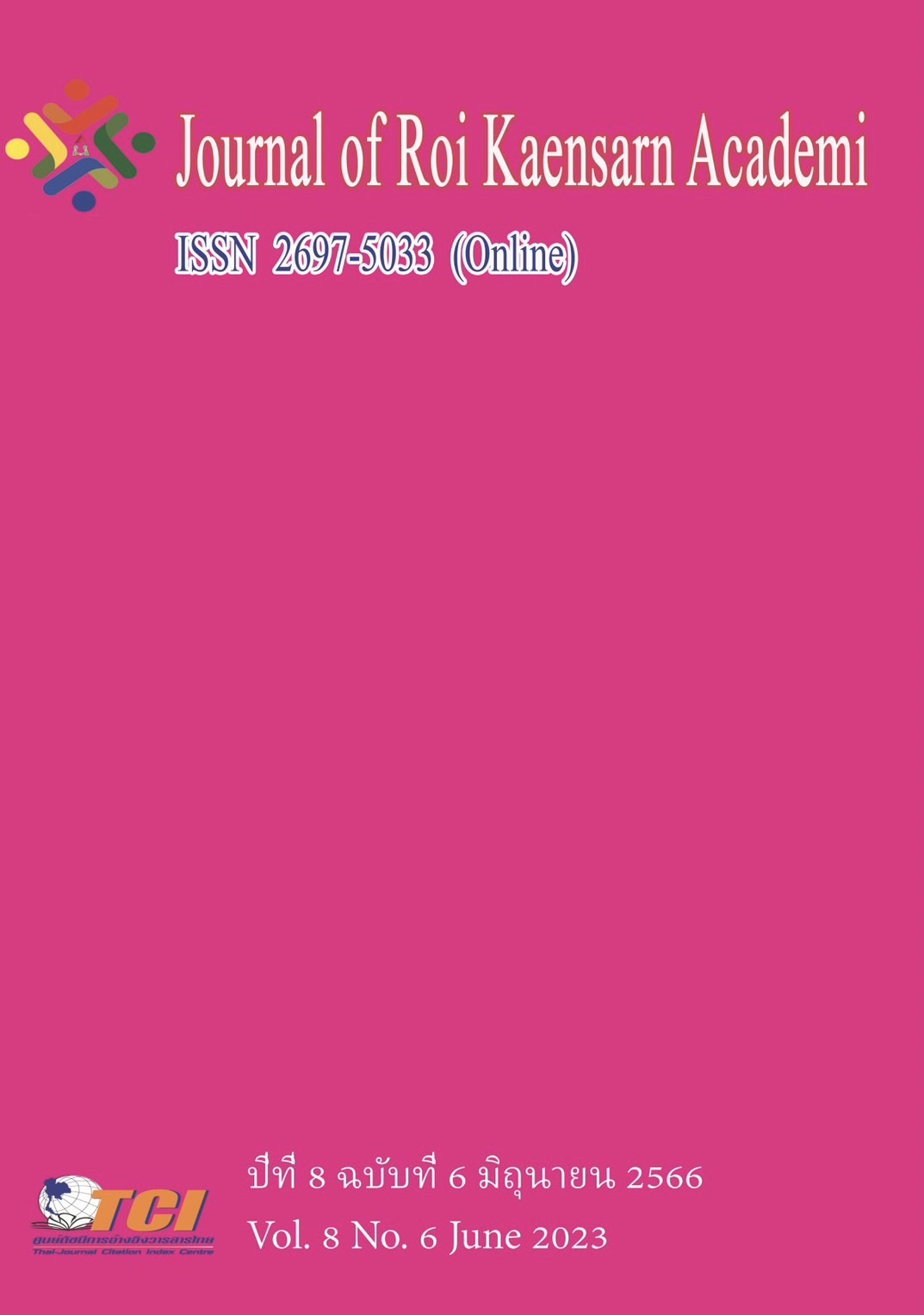Factors Affecting Talent Training Program of Art and Design Postgraduate Students: A Case Study of Shenyang University, Liaoning Province, China
Main Article Content
บทคัดย่อ
The objectives of this research were: (1) To determine the factors that affect the talent training program for art and design postgraduate students at Shenyang University, Liaoning Province, (2) To analyze the relationship between factors affecting the talent training program for art and design postgraduate students, and (3) To evaluate the fit of the model.
The research was a quantitative methodology research. Population was students which were selected from year1, 2, and 3, totaling 450. The sample size was determined by G*power software, obtained by a stratified random sampling technique sampling method, totaling 280 samples. The instruments used for data collection was a five-level rating scale questionnaire. The statistics used for data analysis were frequency, percentage, mean, standard deviation, and Confirmatory Factor Analysis (CFA) and structural equation model (SEM).
The research findings revealed that: there were five factors affecting the talent training program of art and design postgraduate students at Shenyang University in Liaoning Province which consisted of (1) the source structure of graduate students, (2) the quality of tutor team, (3) postgraduate training conditions, (4) postgraduate training system, and (5) postgraduate training quality. The relationship of factors affecting the talent training program for art and design postgraduate students were the graduate training system had both direct and indirect effect on the dependent variable of the postgraduate training quality, the source structure of graduate students had only direct effect on the postgraduate training quality, the quality of tutor team and postgraduate training conditions did not effect on the postgraduate training quality. Also, the relationship model fit well to empirical data.
Article Details
เอกสารอ้างอิง
Cortina, J. M. (1993). What is coefficient alpha? An examination of theory and applications. Journal of Applied Psychology, 78(1), 98-104.
Gaertner, H. (2014). Effects of Student Feedback As a Method of Self-Evaluating the Quality of Teaching. Studies in Educational Evaluation, 91-99.
Gridina, Elena G. et al. (2012). An industry-specific personnel training system: devel-opment and implementation. Education Journal, 15-23.
Guan, Erqun et al. (2012). Mode Selection and Reflections on Practical Training Mode for Full-time Postgraduates of Education: A Case Study of Liaoning Normal University. Journal of Liaoning Normal University(Social Science Edition), 71-74.
Hair,et al. (2014). Multivariate Data Analysis (7th ed.). Upper Saddle River, NJ: Prentice Hall.
Hoyle, R. (1995). The Structural Equation Modeling Approach: Basic Concepts and Fundamental Issues. In R. E. Hoyle, Structural Equation Modeling: Concepts, Issues, and Applications (pp. 1-15). Thousand Oaks: Sage Publications.
Krause, K. L. (2012). A quality approach to university teaching. In L. &. Hunt, University Teaching in Focus: A Learning-centred Approach (pp. 235-252). London: Routledge.
Likert, R. (1932). A Technique for the Measurement of Attitude. Archives of Psychology, 1-55.
MacCallum, R. C., & Austin, J. T. (2000). Applications of Structural Equation Modeling in Psychological Research. Annual Review of Psychology, 201–226.
Miroshin, Dmitriy G. et al. (2017). Corporate Personnel Training System. Eurasian Journal of Analytical Chemistry, 1237-1248.
Rovinelli, R. &. (1977). On the Use of Content Specialists in the Assessment of Criterion-Referenced Test Item Validity. Tijdschrift Voor Onderwijs Research, 49-60.
Streiner, D. L. (2003). Starting at the beginning: An introduction to coefficient alpha and internal consistency. Journal of Personality Assessment, 80(1), 99-103. Retrieved from Statistics How To Web site: https://www.statisticshowto.com/probability-and-statistics/statistics-definitions/cronbachs-alpha-spss/
The National Steering Committee for Graduate Education of Art Majors. (2020). Notice on the Revision of Master's Degree Training Program for Master of Fine Art Graduates. Beijing, China: The National Steering Committee for Graduate Education of Art Majors. Retrieved from http://gs.zzu.edu.cn/info/1122/10449.htm
Van de Grift, W. J. (2014). Measuring Teaching Quality in Several European Countries. School Effectiveness and School Improvement, 295-311.

